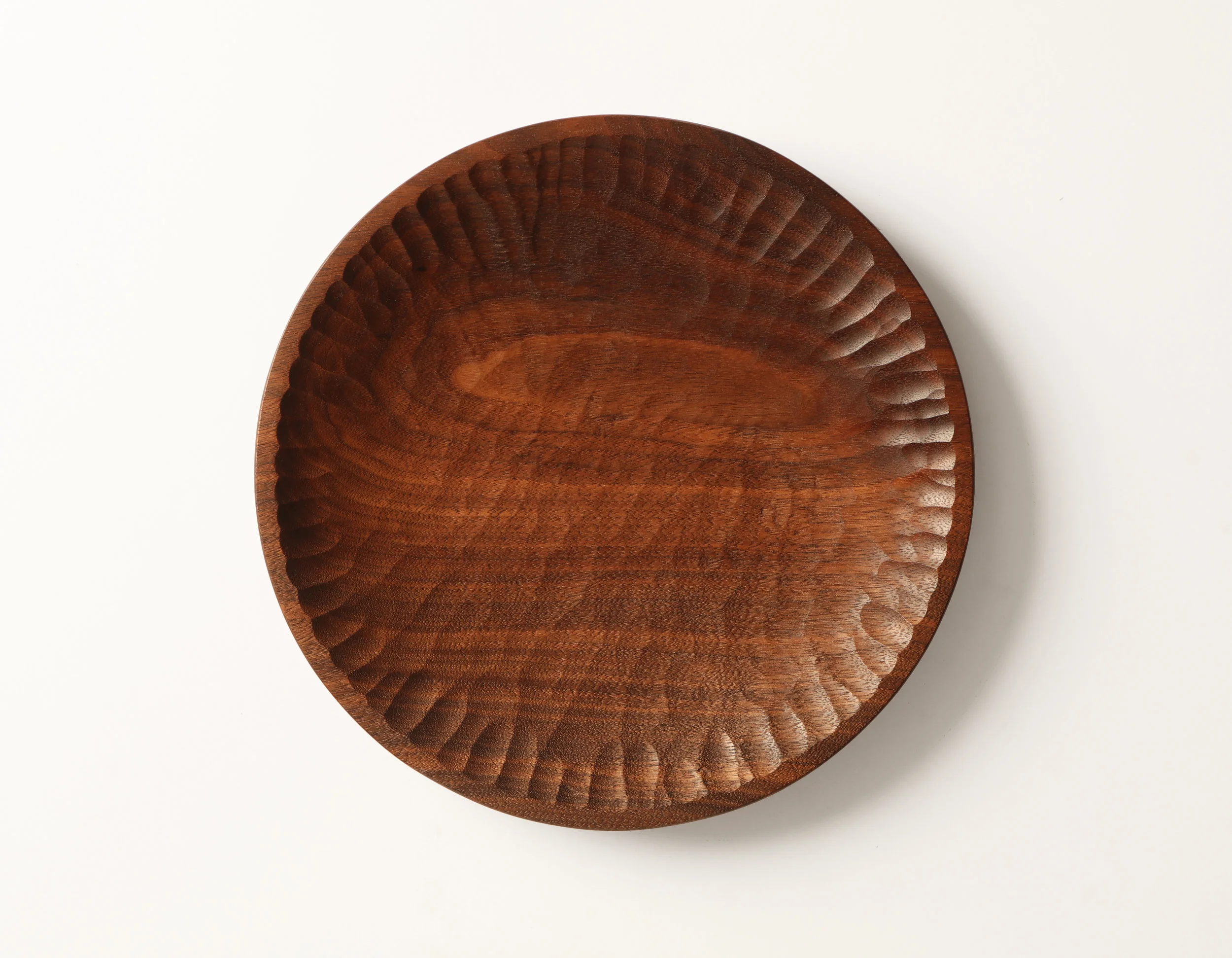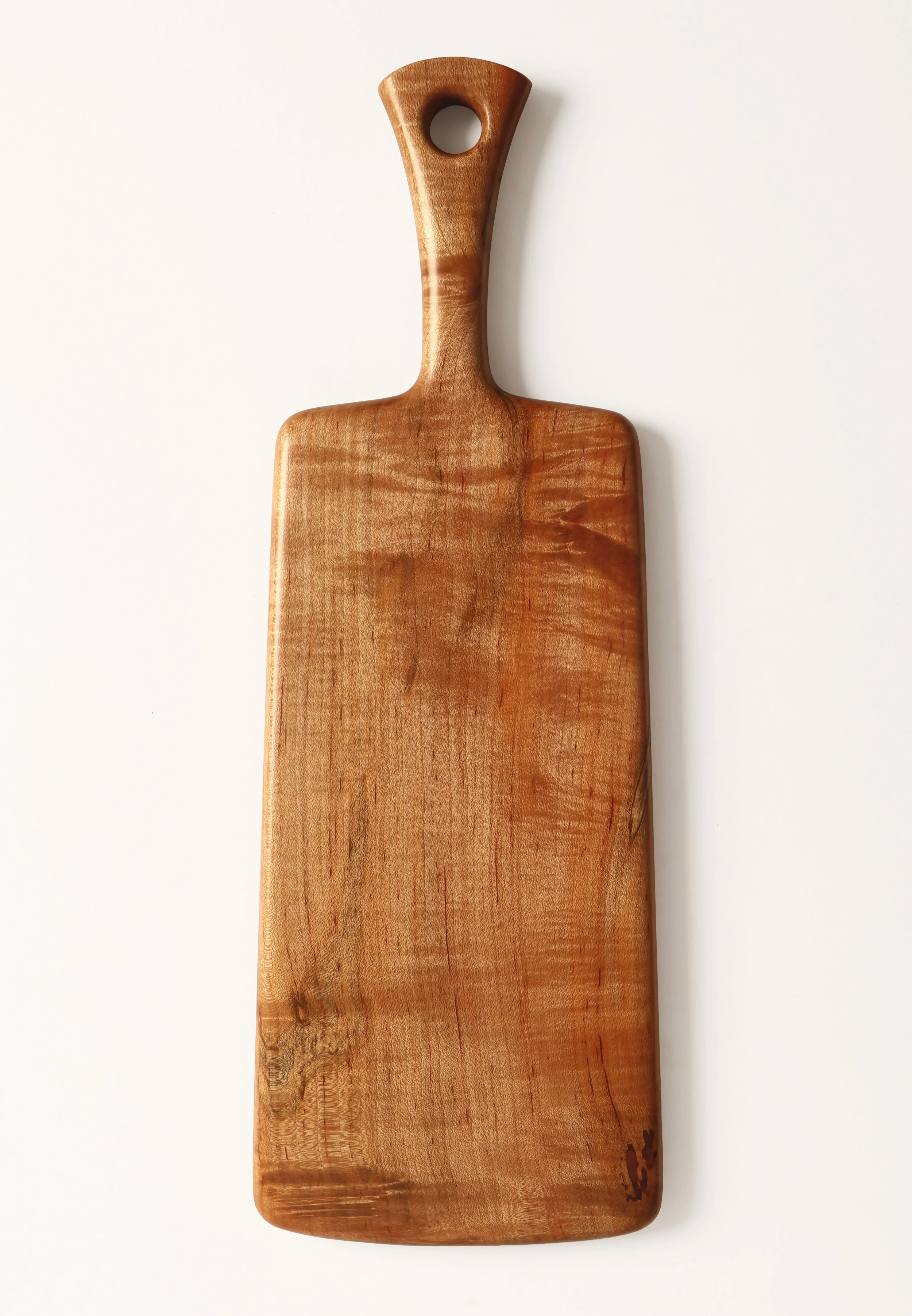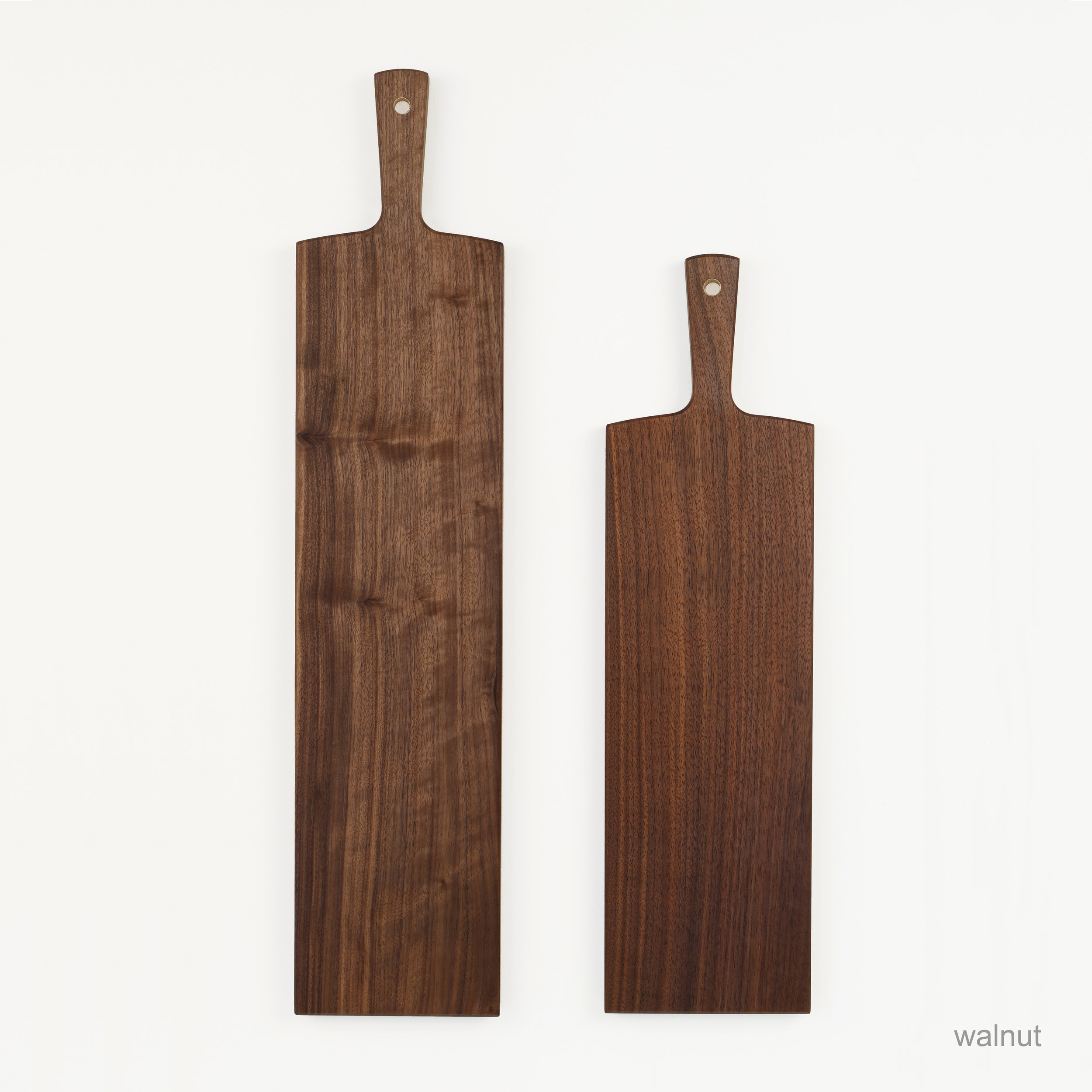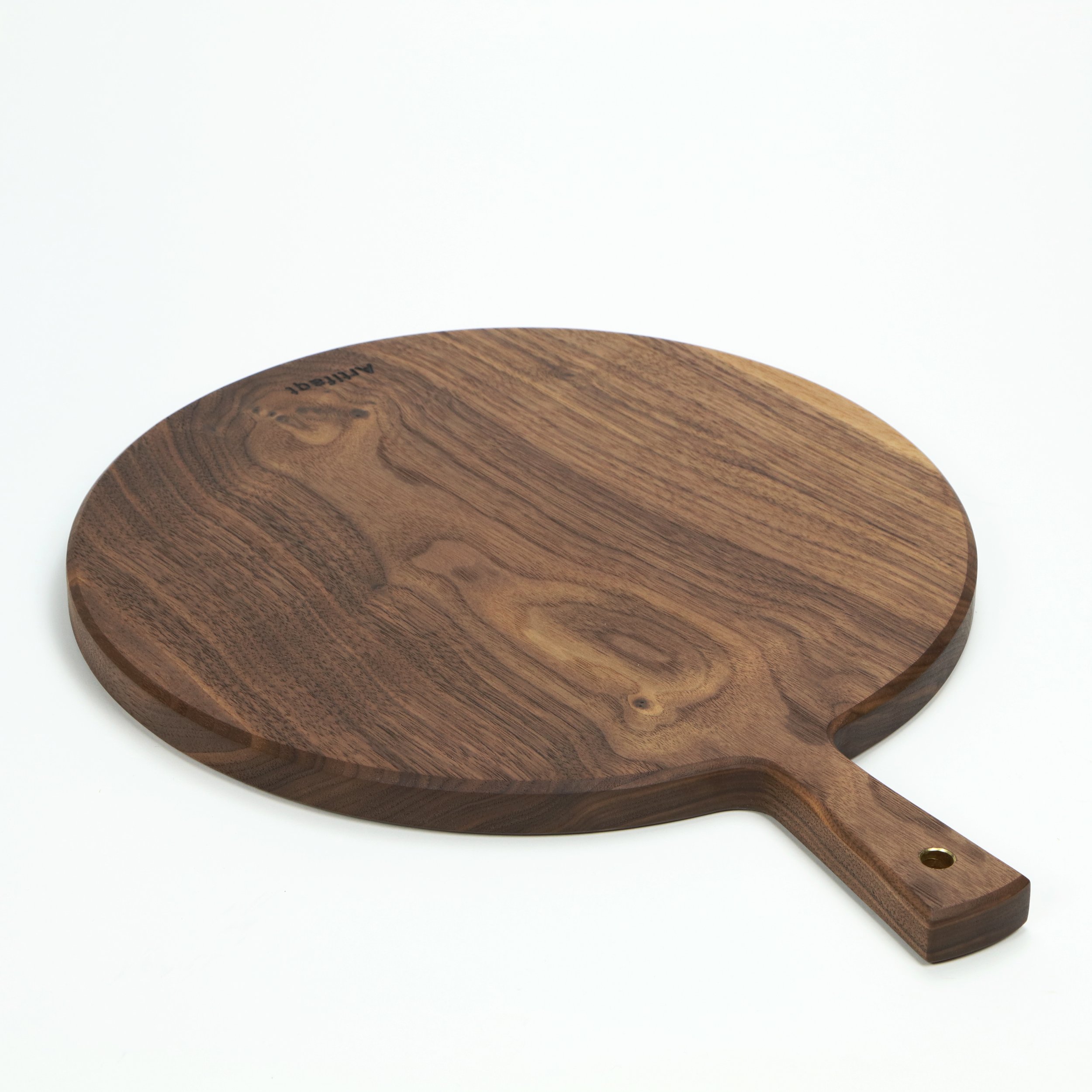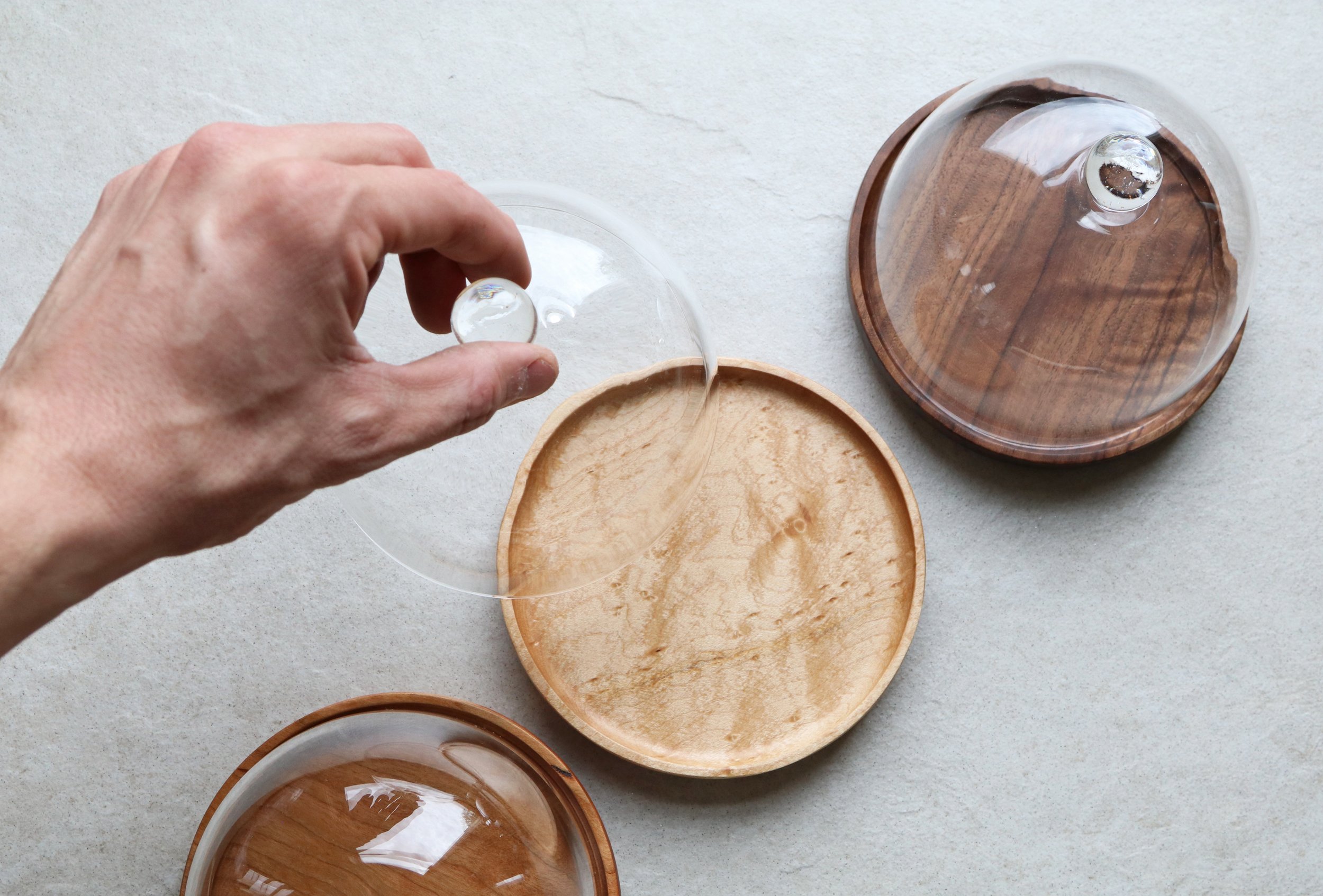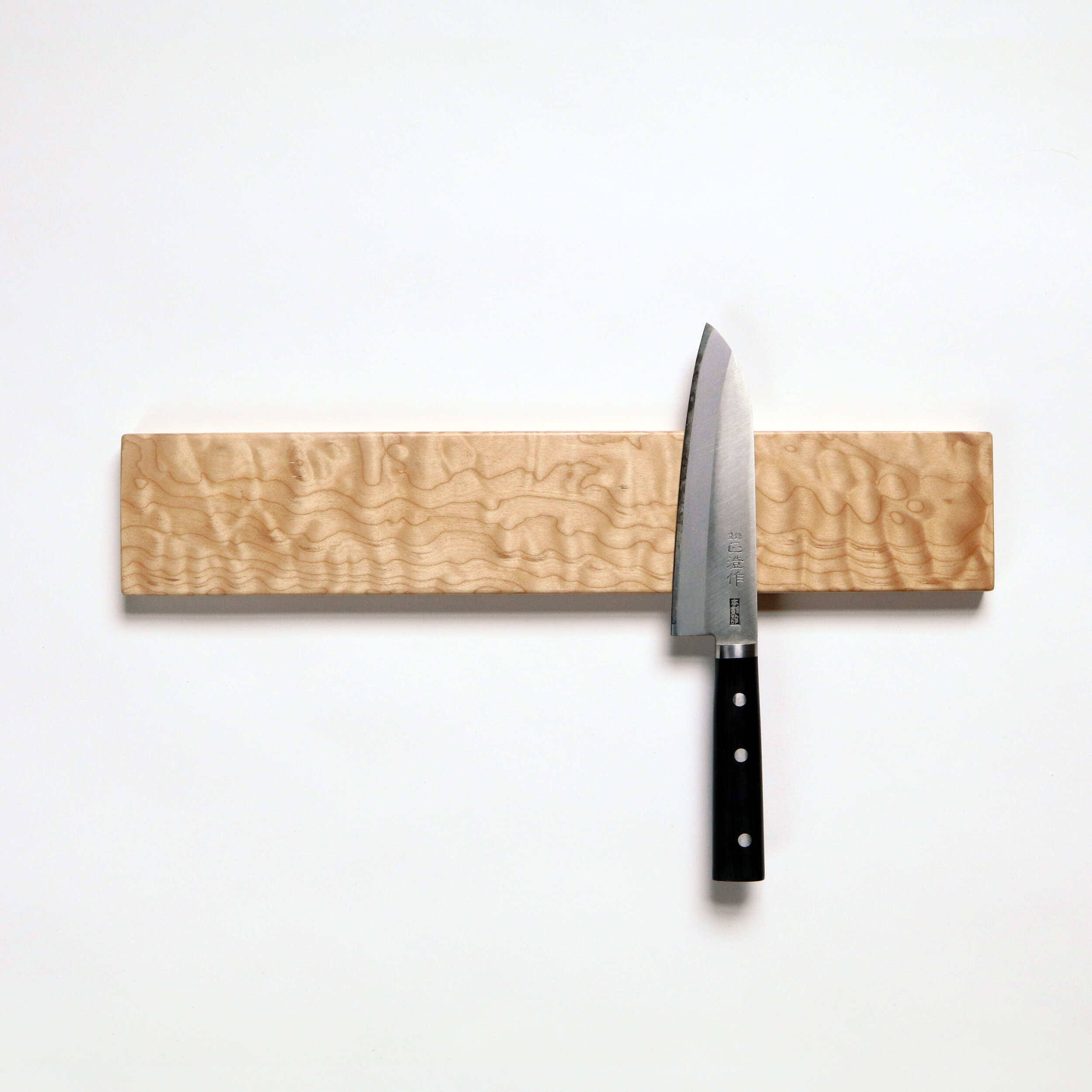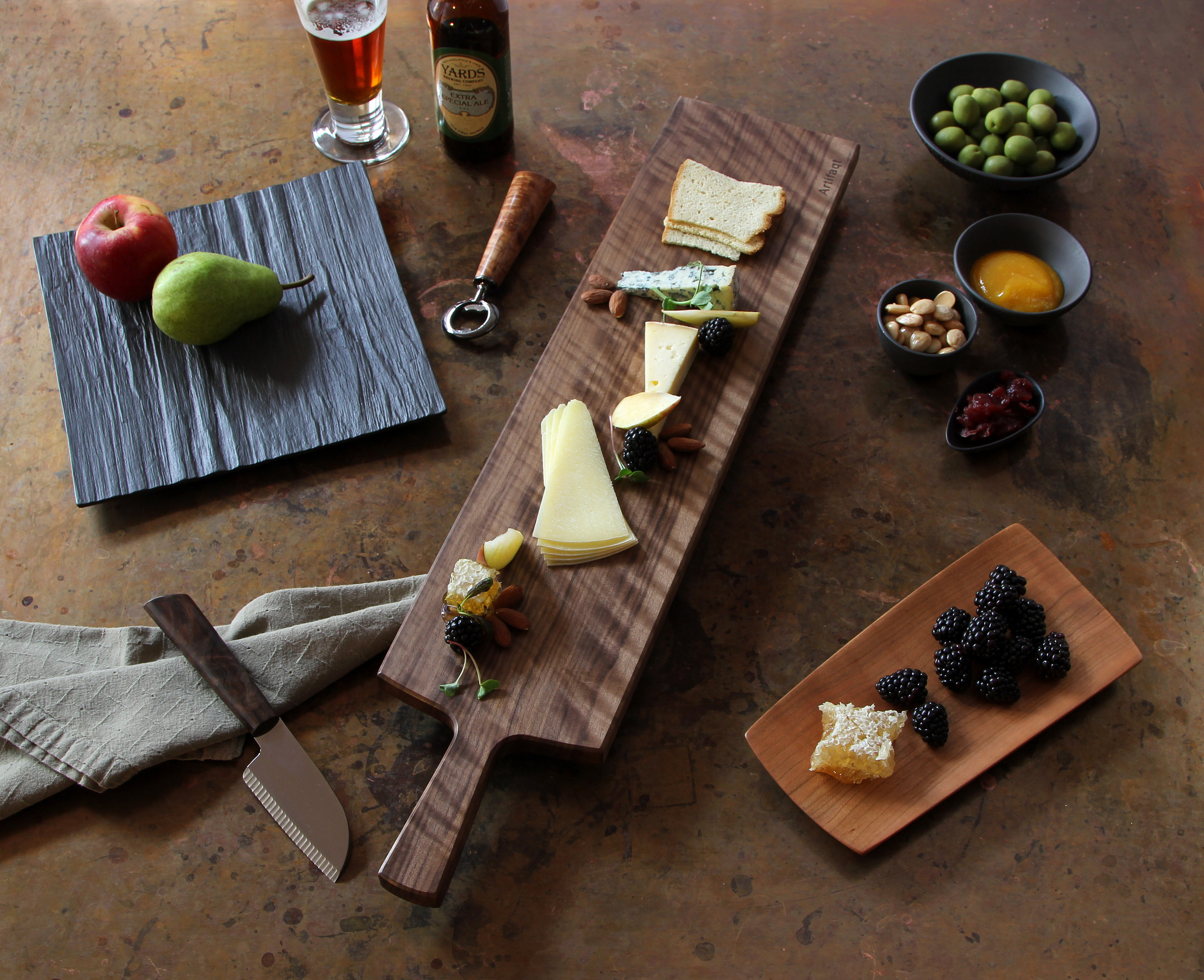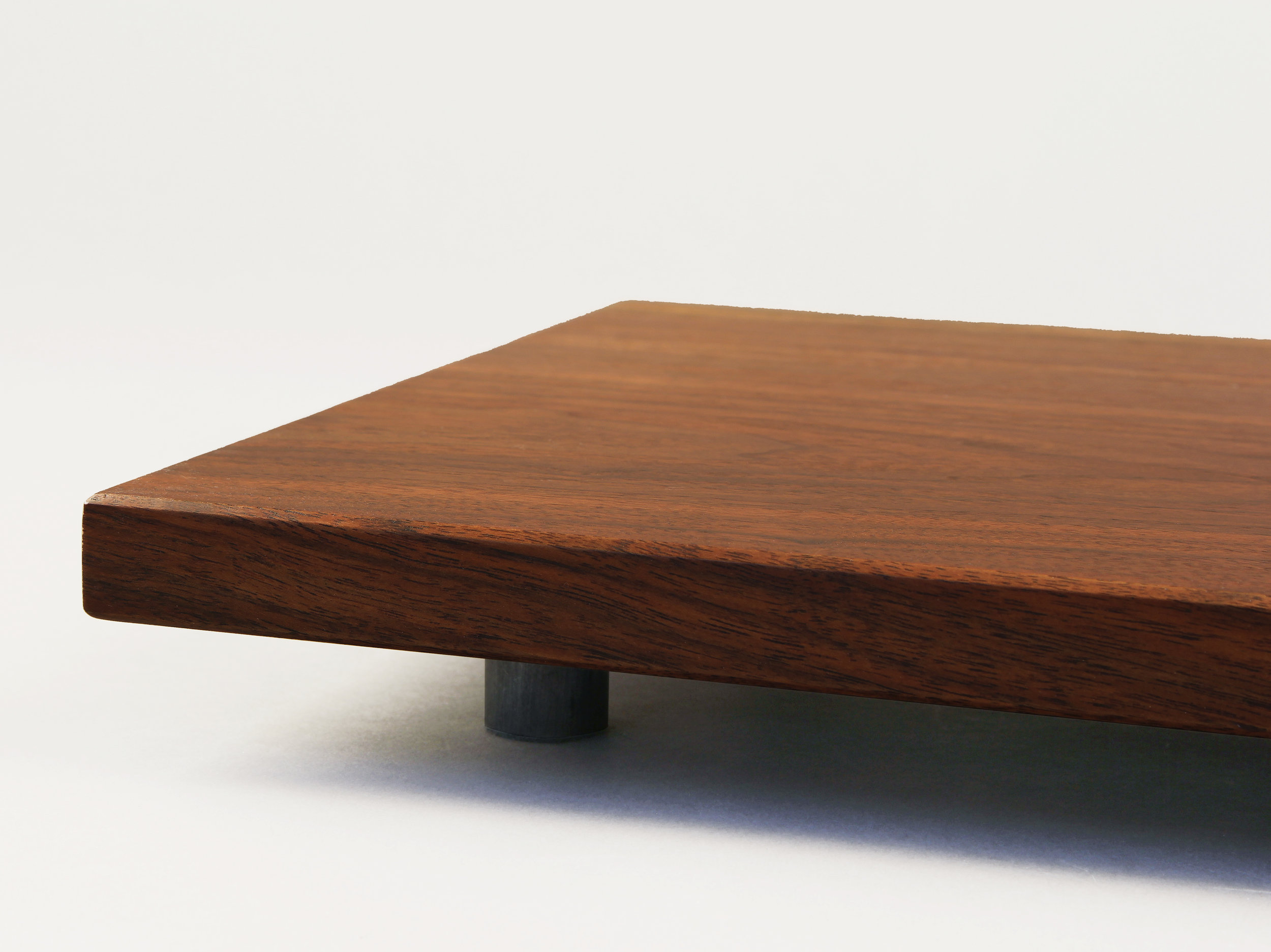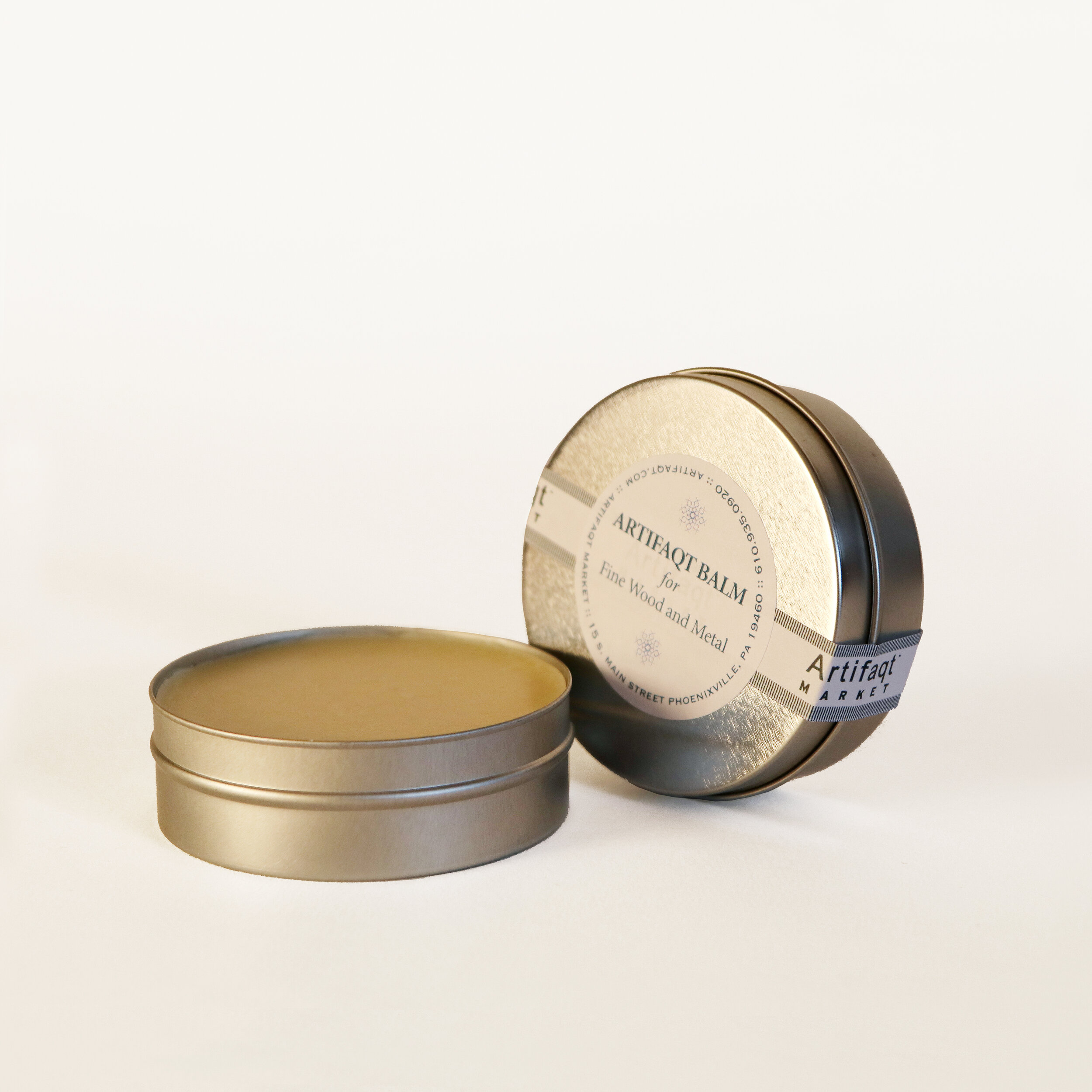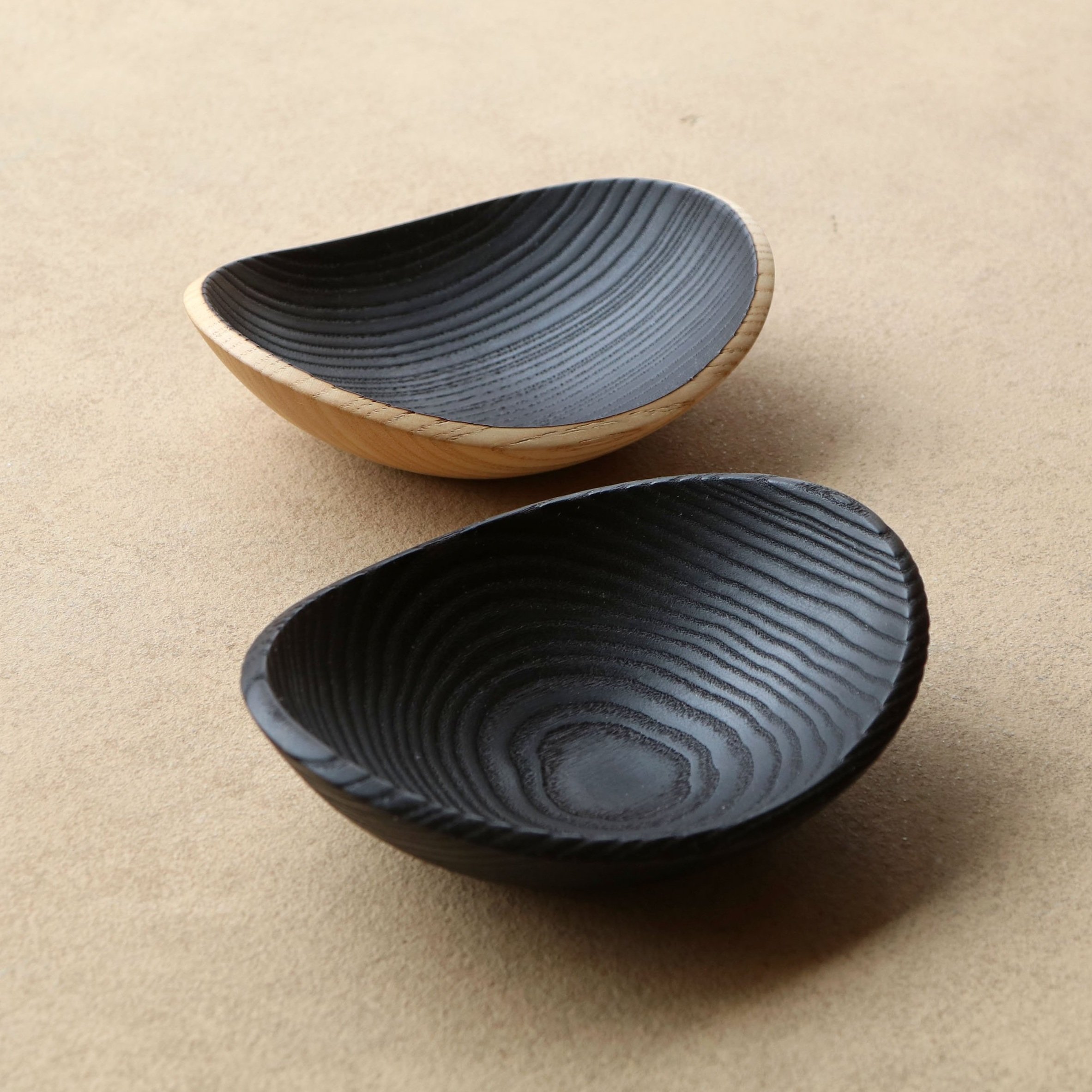Pennsylvania Hardwoods
A couple weeks ago, we posted a picture of Pennsylvania Black Walnut that we had just received from the Allegheny Mountains. We are incredibly proud to use local wood for all of our serveware and wanted to share this excitement. My friend responded to the post with the comment, “save the treeees!” While made mostly in jest this comment made me reevaluate how our story is perceived.
For us, using local hardwoods is a sustainable act that strengthens our regional economy and provides a beautiful, long lasting medium for tabletop goods. However, to the outside observer it might be perceived as clear cut forests and habit destruction right here at home.
So we wanted to take some time to talk about hardwood harvesting and share why we are proud to live in the largest producer of hardwoods in the country - Pennsylvania.
Chart depicting the net growth of Pennsylvania hardwood within the state.
Reservations about using locally harvested wood might exist because of the constant stream of publicity about tropical deforestation. But the reality is that hardwood forests are expanding not shrinking in North America. For example, here in Pennsylvania forests are increasing in volume twice as fast as they were being cut or lost to natural mortality.
The chart below uses data from the USDA Forest Service to show that the growth in the volume of standing timber in Pennsylvania is five times greater than it was sixty years ago.
This growth is not by accident. It is a result of extremely conscious and intentional forest management practices referred to as “silviculture.” Silviculture is analogous to agriculture in that it involves working with an understanding of how trees in a forest establish, grow, and compete. Unlike agriculture which deals with short rotations, forests grow and require management over much longer time. Like agriculture, forest management involves weeding, thinning, harvesting, and “planting" to ensure a continuous flow of products—from habitat to timber. Trees compete for water, nutrients, light, and space. By understanding the requirements of various tree species for their best performance on a given site, silviculture guides forest development through harvests designed and timed to weed and thin the forest and to establish the next crop. Additionally, in Pennsylvania it is seldom necessary to plant following a timber harvest as most forests “plant" themselves with naturally occurring seedlings and the contribution of sprouts from roots and stumps. This extremely intentional forest management allows for Pennsylvania hardwood harvesting to be an integral part of our economy while promoting longterm forest health.
At Artifaqt, the hardwood we use comes from small family run mills throughout the state. These close connections are important to us as we often ask for hand selected cuts of the highest quality. By sourcing material, process, and partners that reflect our values we are able to bolster a healthier regional economy and of course provide the finest product.
Products go from rough lumber to fine finish in our shop. Here is a delivery of Pennsylvania Black Walnut from the Allegheny Mountains.
We work in small batches to complete each product with the utmost attention to detail. Here is Dane working on a batch of RH Serving Boards for Restoration Hardware restaurant locations in West Palm, Florida and New York, New York.
Pennsylvania Black Walnut serving board at Restoration Hardware in Edina, Minnesota. Purchase Here.
Pennsylvania Black Walnut serving board in service at Tria Cafe in Philadelphia. Purchase Here.
Below, you can shop Pennsylvania hardwoods in beautiful shapes and forms. Wood is truly a special gift. From the tree to the lumber to the finished product. We hope you enjoy and if you do purchase from us we thank you for engaging in a more conscious consumerism.
Work for Peace,
Artifaqt


